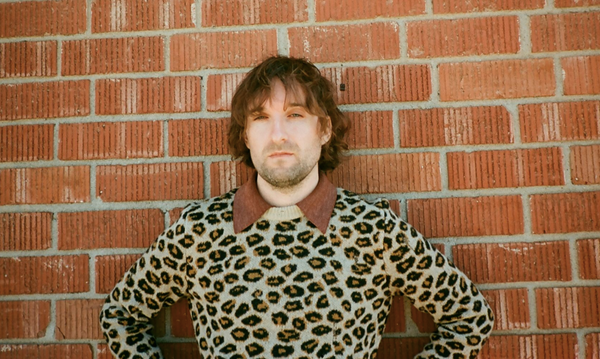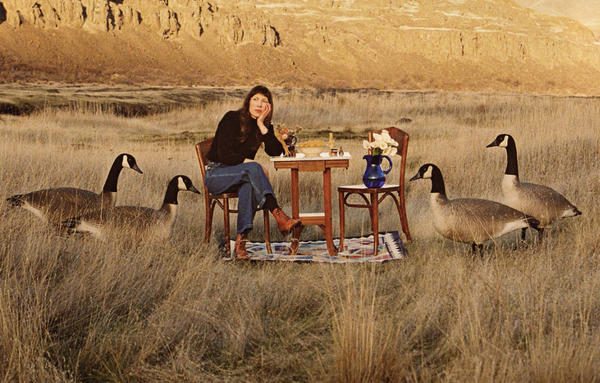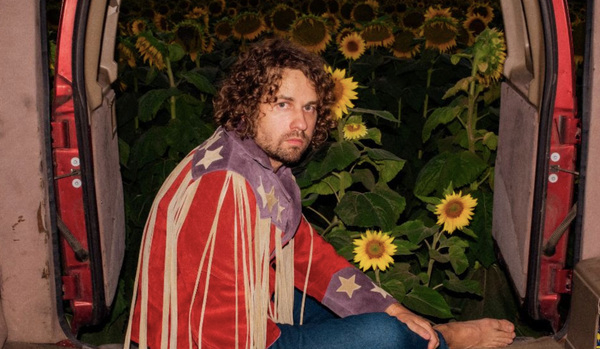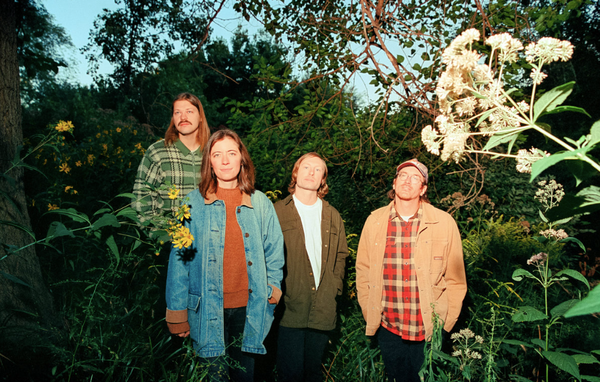In conversation with Runnner's Noah Weinman

Where much of Noah Weinman's previous work felt all tender and stripped-back, his latest work, shaped into a brand new album arriving at the end of August, opens up a whole new landscape, a natural growing into driving, propulsive indie-rock that sits as something of homage to the British noughties indie rock he grew up on.
Weinman always had that spark in him, and at times it broke through, however his work until now had been pieced together at home, built within the constraints that holds. A Welcome Kind of Weakness, the new Runnner album, marks Noah's move to a full and proper studio for the first time – and it's upped the ante.
There were other factors that shaped it too, of course. Much of the new album was conceived and written during a time of enforced rest and recovery from a severe achilles tendon injury that sent him home from tour, and left him bed-bound. A flattening of life as he knew it, which also coincided with a hefty breakup, in all of its unique upheaval.
With nothing to do but reflect and rest, Noah slowly found a way to wrap all of the strands of this disruption into his new work, and the result is a record that not only feels like taking a huge deep gulp of fresh air, but also one that redefines the musical project he's been building since the release of his 2017 debut.
As the written introduction to the new album says: "It takes a certain bravery to sit in the murky middle long enough to write about it." With that thought firmly in mind, and with another excellent new single just released into the world, we spoke with Noah about his journey; about the strength it took to force himself back out into the world.
Check it out below.
Hey Noah, how is summer 2025 treating you so far?
Hey! It’s going well. I just got back from New York where I played guitar for my little sister’s EP release show, and now I’m back in LA for my last month here for a while. I’ll mostly be packing up my room and running around trying to cross off all my bucket list items.
From a nerves vs excitement p.o.v, what stage of the album cycle are you currently at?
Probably nerves for this album. To be fair it’s mostly out at this point, but I’m still nervous for everyone to hear it in full. We just mailed out the free early CD’s so hopefully I’ll get to talk to some of those folks. I’m also classically restless to get back in the studio to do the next album.
The album was shaped by your injury and recovery. How long did you spend bedridden and what did that time do to your psyche? Were you surprised by the effect that time had on you?
There were stages to it. I had about 6 weeks of being in bed. I could use crutches to hobble around the house a bit, but with the tendon being so fragile after surgery I opted to mostly stay horizontal. After that I had a walking boot for another 2 months so I was somewhat mobile, but on a very limited basis.
That first week between injury and surgery I was miserable. We were cancelling tours and sessions and everything and I just felt like it was my fault for doing something stupid. Then there was plenty of anxiety about what other parts of my body were going to break next. But once I had the surgery there was kind of a calmness, and that surprised me. The period of uncertainty had waned and now I just had to heal, which felt way more manageable to me. I was actually kind of excited to have this expanse of time to read and write and play video games. And in a very unsurprising turn of events, I ended up becoming stressed about finishing all of those things before I started walking again.
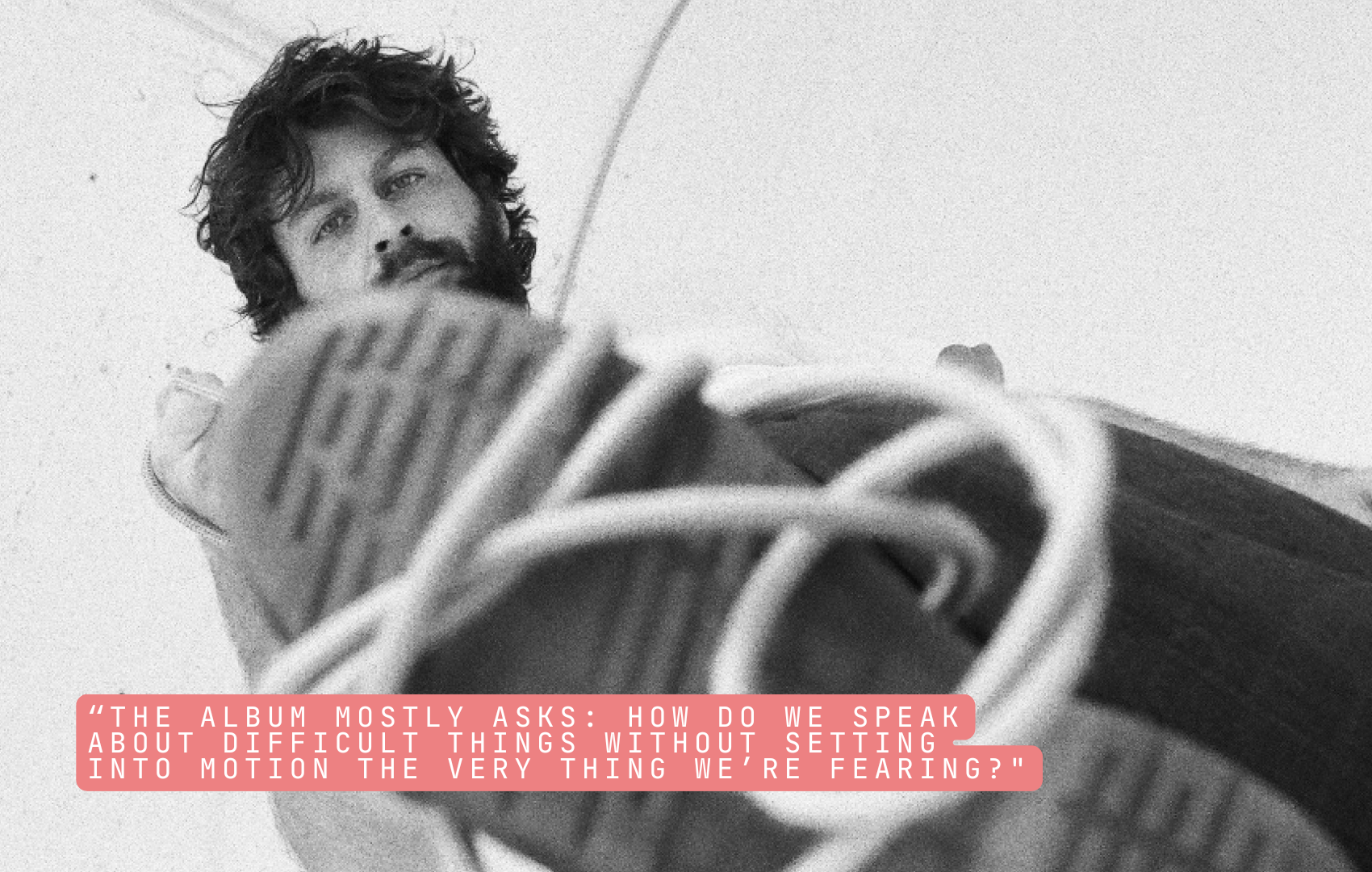
What was the creative journey like through that time?
I wrote 'Spackle' and 'Achilles And' on my back in bed, and also made much of 'Starsdust' during that time. It also opened a new period of creative revision that I had not really had before. Usually I feel like I’m moving too quickly and songs that I’m not excited about anymore get booted, but with more time on my hands I went back through old demos and ended up tweaking things on 'Chamomile' 'Get Real Sleep', 'Split' and 'Claritin'. There are many more songs I wrote during that time too, but they’re not on this record.
The journey was a little frustrating, but by design. There was a kind of kinetic energy I felt when I was stuck in bed, like once I could walk again I would be boundless, and that feeling was exciting. I tried to mirror that in the record by not really making demos (I had a few but they were really just so the band could learn them for tour, less so to inform the record). Without demos the songs were still completely untapped potential to me, but that was also so frustrating as someone who had always made records up until then on my own computer, chipping away at the songs over years. I like always having them in my hands in some way instead of just in my head, but I wanted to try forcing myself out of that here.
At what point did you decide to make the leap from the home studio and what drove that decision? What were you reaching for that hadn't been there before?
I’d say it was a split creative and practical decision. Creatively, these songs felt big. Bigger than I could do justice in my home studio. I was listening to a lot of early Radiohead, Coldplay, Snow Patrol, etc, and I was trying to write songs like that. Those kinds of pristine records felt untouchable to me for so long, but then I thought: why? I know how they get made, what would happen if I tried to do that? How would that process sound on my songs? Filtered through my lens?
Practically, this is my last album on my current deal with Run for Cover Records, so it is the last guaranteed chance I have to make a record on somebody else’s dime. Might as well spend it.
Did the move to a full studio shift anything in your songwriting, do you think? Did you approach the process any differently?
I found it liberating. I think in the past I had to curb certain ideas because it would overwhelm my engineering capabilities, but here I just wrote the song I was imagining with no restraint, and then told myself someone else could figure out how to record and mix it.
I didn’t hold the record in my hands as much as my head. Normally I’m always writing and recording at the same time, but here I just had the songs, and they lived on someone else’s computer. I couldn’t tinker with them in the same way, which was both extremely frustrating and extremely rewarding.
Do you remember a song, or a moment even, that kind of crystalised what it was you were hoping to do with the record?
I wrote the instrumental hook for the ending of 'Spackle' in the car on the way to the studio. Usually I play a kind of first though instrumental line and then become attached to it, or immediately throw it away. And it’s often more based on sonics or texture than melody. But in this case, I had to think about it leaving the studio the day before, sleeping on it, and then finally having the idea heading back to the studio the next day, made me focus on parts in a new way. And I just had the melody in mind, we later figured it out with the sax and the guitar playing in unison, which was also a fun challenge.
In the album's introduction you say: “In past songs, I was afraid to write with any sort of absoluteness or to speak straight forward because to do so would be to speak feelings I wasn’t yet ready to feel”.
I found that really interesting, because I think most people assume that all songwriting comes from a place of pure honesty, all the time. I would love to hear more of your thoughts on that. Also, whether you aware of that while writing the songs or if it came more from retrospect?
I think that good songwriting still does come a place of pure honesty, but sometimes we are honest without being truthful. I’d say the end of my last relationship really started while I was still recording Like Dying Stars, We’re Reaching Out but I think I only realized that in hindsight. I wouldn’t necessarily say I was being dishonest on that record. But there’s a lot of fear on that record and that fear is mostly that once you say something, you can’t always get it back. So there’s a caginess to it. The album mostly asks: how do we speak about difficult things without setting into motion the very thing we’re fearing? In my case, how do we address problems in our relationship that feel so fundamental that to address them is to hit an impasse that probably ends it? (Or maybe that’s just how I read it now because that’s what happened).
Coming out of that, I felt like I could explore the feelings better with some distance. I could take more ownership over my own experience in my solitude. I still avoid absoluteness because so many of my songs have to do with relationships of all kinds, and I am reluctant to speak on anyone’s perspective with certainty. But I do think on this record I gained the confidence to write more straight forward. Some of that just comes with age I think. With enough experience of hurting and being hurt, you get better at understanding it without the haze of confusion or frustration. And with that, you can dive deeper in them as songs.

I would also love to hear your take on the album title itself, and what it means to you.
It’s a nod to how self-fulfilling a life of writing songs can be. And I mean that in a prophetic and perhaps dooming sense, not in a spiritual fulfillment sense (though I do find writing to be spiritually fulfilling). This is going to be a little bit of a ramble so bear with me, I’m sorry. Both previous album titles were taken from lyrics of songs that gained new meanings in the context of recording the album, and whose writing predates any notion of the album. "Always Repeating” is the first line of 'New Sublet', which at the time of writing was in reference to moving across the country and setting up my new bedroom/studio. Then I was doing it all over again in reverse. “Like Dying Stars, We’re Reaching Out” was taken from a song I had written right after leaving college. I was losing touch with the people I used to see every day and reflecting on all the imperfect ways I tried to communicate with them. It felt relevant again in the pandemic. So now I’m starting to build a kind of superstition/conspiracy.
With A Welcome Kind of Weakness - I initially just meant sleep. Because it’s taken from the song 'Get Real Sleep' where I say “And when you feel it come on is it a welcome kind of weakness?” and I always liked that phrase. So it just confirmed my superstition that as soon as I get injured and start making a record about it, there’s already a song lyric that sums up my situation better than I could in the moment. To me it’s about embracing all of these things that are seen as bad or difficult like getting injured or going through a breakup. It is a question in the song though, so maybe they aren’t always welcome, but then album becomes a practice in learning how to embrace those inevitable things into your life.
What do you hope other people find in this record? How much do you consider the listener when making and/or releasing your work?
I hope it’s a cathartic record for people. It was for me. I was stuck in bed and so restless and I wanted to make a big, loud, bright, anthemic album because of that. I hope people blast it in their cars with the windows open and also in the rain, and maybe both at the same time. I often try to consider the listener, but it’s a balance. I think of the songs as a conversation. I want to offer my experience in a way that still feels accessible, like building a bridge between us instead of a statue on my end. I think I cut the bridge a little short so that it’s still mostly on my side, both to make sure I have my own perspective here but also to invite the listener to reach out too.
A Welcome Kind of Weakness is out 29th August, via Run For Cover
You can pre-order it here
*

